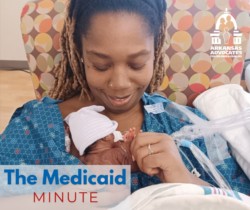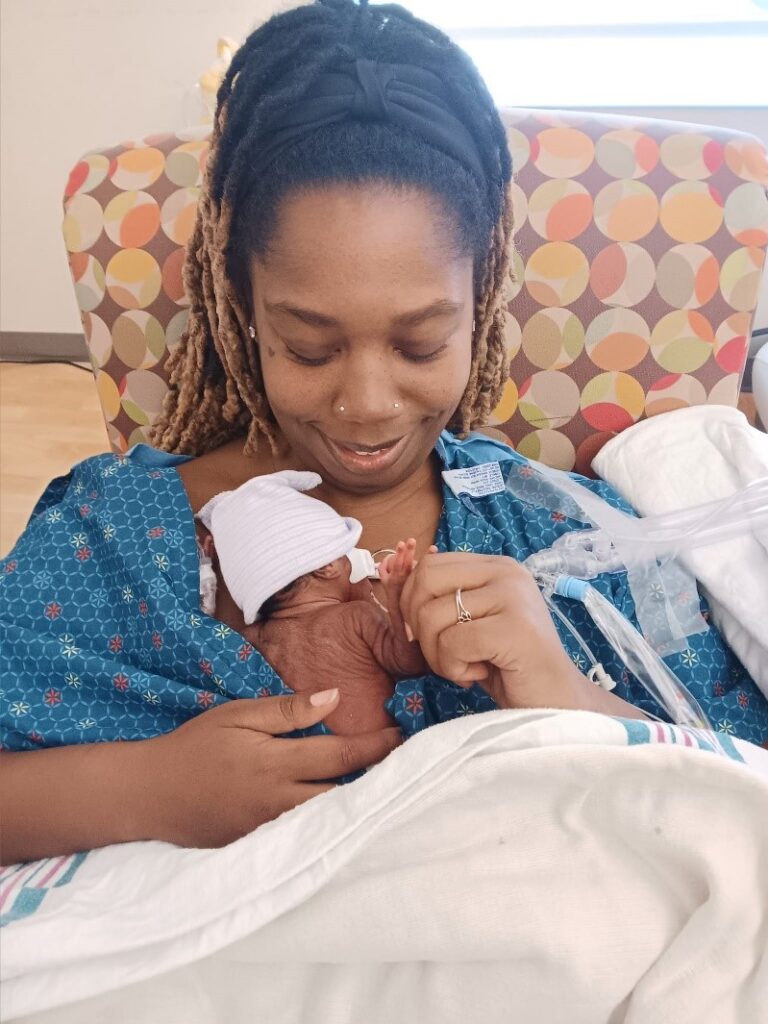
Arkansas Advocates for Children and Families is collecting stories from people who are insured through ARHOME, one of Arkansas’s Medicaid programs. Data points and numbers are important because they help us understand the impact, but at the end of the day, numbers are only part of the picture. Storytelling is imperative to understanding the impact that Medicaid has in Arkansas communities. Engaging people with lived experiences can help inform and advance good policy.
Through this storytelling project, we aim to work directly with people who receive their health insurance through the Medicaid program and to lift the voices of those who have barriers to coverage. We plan to provide these stories to educate lawmakers and highlight the importance of investing in Medicaid for families and in communities. Over the next several months, Arkansas Advocates will share the stories of individuals with experience with the Arkansas Medicaid program in our new series, “The Medicaid Minute.”
Maya’s Story

Maya, a Little Rock resident, gave birth to twin boys prematurely at 25 weeks due to liver and gall bladder issues. Weeks later, even before her original due date, the state transitioned her Medicaid coverage without her knowledge. She had to get all new referrals for urgent gallbladder surgery that had already been scheduled and approved. This delayed her surgery and urgent care.
“First of all, I didn’t even know that my insurance got switched,” Maya told us. “I only knew that when I was going for a prescription, the pharmacy told me that my insurance was no more.”
Maya said she received no notification that her coverage would be ending. As a result, she spent countless hours on the phone advocating for her health while navigating the harsh reality of being the parent of babies in the Neonatal Intensive Care Unit, or NICU.
“They didn’t have it on file. I didn’t get a phone call,” she said. “I didn’t get a piece of mail. I got nothing.”
Maya made it her mission to get answers, only weeks after having an emergency C-section, nearly 15 weeks before her due date.
“Right after giving birth, I had to go home and investigate it myself and try to figure it out,” she said. “At first, I was honestly so sad and mad about it, and I didn’t know what to do. I felt so frustrated.”
Maya and her mother spent countless hours on the phone trying to get help. Advocating for yourself can be challenging enough, but Maya had to do so while caring for her twins, who required around-the-clock medical intervention in the NICU. She had to navigate this intense stress while trying to get care for her own health needs. She called multiple providers trying to get her emergency surgery rescheduled. Despite the grueling hours spent trying to get help, she discovered they were either not taking new patients, they did not perform the type of surgery she needed, or she was too young for the specialists she was referred to.
According to Maya she was, “back to square one, because I needed a referral for everything, and I couldn’t do anything until (I found a doctor) within their system.” She described the pain from her gallbladder issues as, “an amount of pain (she had) never experienced before.” This comparison comes right after having an emergency C-section.
Eventually Maya did find a doctor who could perform her surgery on the same day, with two hours’ notice. During this time, Maya also lost access to her specialist therapist who had been helping with her diagnosed postpartum depression. She explained the process of navigating this process as “absolutely miserable,” and contributes her success to the unending support of her mother. Maya says she “would have crumbled” without this support and that the system felt designed to be confusing.
“I was literally at the phone crying and my mom would just take the phone and pick up where I left off because I was so frustrated. I was ready to give up and it almost felt like that’s what they want you to do, you know? It didn’t feel like anybody was really trying to help.”
For Maya, she is “surprised she made it through” and “doesn’t think 60 days of postpartum Medicaid coverage is nearly enough.”
Amid the chaos, Maya was finally able to receive some of the care she needed, but this process took a toll on her mental and physical health. In Maya’s words, having her health insurance coverage extended to 12 months with continuity of care would have, “made my life so much easier.”
Arkansas is now the only state to have not extended postpartum coverage to 12 months, have pending legislation, or have limited extension proposed. It is encouraging to know that Arkansas is particularly focused on maternal health and improving our maternal health outcomes, but we are leaving out one clear win: extending postpartum Medicaid coverage to 12 months.
How to get Involved with the Story Collection Project
Arkansas Advocates for Children and Families has several options for individuals and families to share their experiences with the Medicaid program. Each participant will be required to fill out an informed consent document where they can describe the ways in which they are comfortable with their story being collected and shared. No personal stories will be shared without prior consent from the participant. To learn more about how to get involved with this project, please contact our Health Policy Associate, whose contact information is below.
- Hayley Erin Cormican, Health Policy Associate
- Email: hcormican@aradvocates.org
- Phone: 870-262-7856
